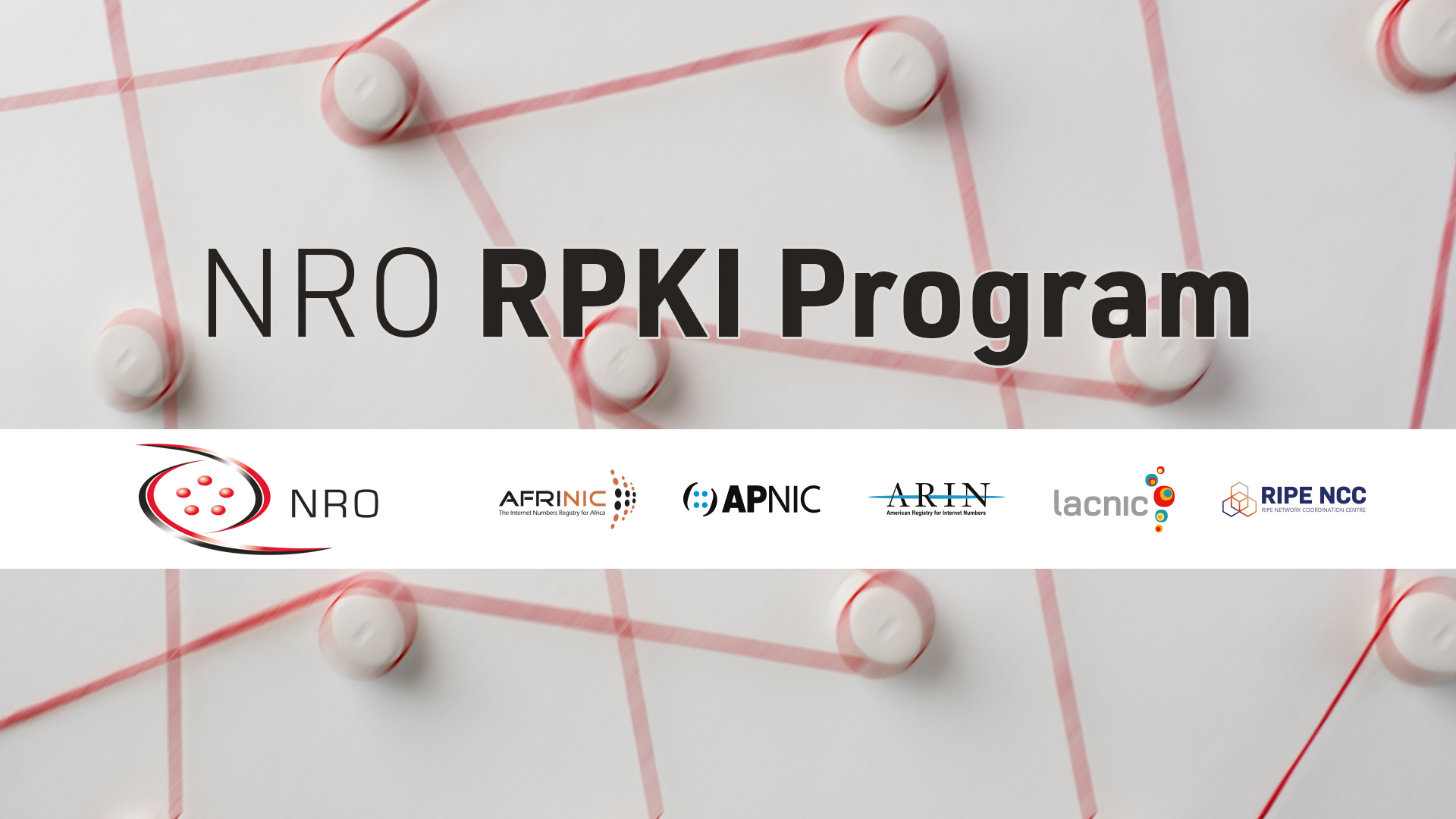
NRO RPKI Program Blog Series: Part 2
In our previous blog post, we introduced the new NRO RPKI Program and what we are aiming to achieve:
We have now broken down that purpose into more specific outcomes that will guide our efforts.
Firstly, we want to gain a better understanding of what a single, global RPKI system would look like. We would like to know more about the expectations from the community in terms of consistency across the Regional Internet Registries (RIRs) in their RPKI implementations.
While we work with the community to clearly define what a single, global RPKI system would look like, we can start working on improving some other aspects of the RPKI system — namely robustness and security.
We plan to put some focus into better measuring the robustness of the RPKI system as a whole by agreeing on what are the aspects of robustness that should be measured, and clearly documenting the current status and any relevant planned development initiatives for each RIR for those aspects, so that in the future we can make this information public in a uniform way.
We also want to enhance the security consistency of the RPKI system across the different RIRs by establishing a baseline, working with the guidance of security experts on setting the minimum security requirements, and identifying the gaps per RIR, so we can then prioritise those gaps and work towards closing them.
Finally, and where a lot of my focus will be as a Program Manager, we will work to keep the technical community informed and engaged throughout the program and to address RPKI-related concerns in a coordinated way. I will soon be working on validating some assumptions. If you would like to volunteer to participate in interviews or other forms of user research activities, please let me know.
What are your main challenges around deploying RPKI? Have you created Route Origin Authorizations (ROAs)? Have you set up Route Origin Validation in your routers? What are your main concerns about the RPKI system as it stands today? Please get in touch and share your thoughts with us!
Learn more about ARIN’s RPKI services at arin.net/RPKI.
Any views, positions, statements, or opinions of a guest blog post are those of the author alone and do not represent those of ARIN. ARIN does not guarantee the accuracy, completeness, or validity of any claims or statements, nor shall ARIN be liable for any representations, omissions, or errors contained in a guest blog post.
Recent blogs categorized under: RPKI
GET THE LATEST!
Sign up to receive the latest news about ARIN and the most pressing issues facing the Internet community.
SIGN ME UP →Blog Categories
ARIN Bits • Tips • Updates • Elections • Caribbean • Outreach • Security • RPKI • Public Policy • Guest Post • Grant Program • Fellowship Program • Data Accuracy • IPv6 • Business Case for IPv6 • Internet Governance • Training • IPv4 • Customer Feedback • IRR



